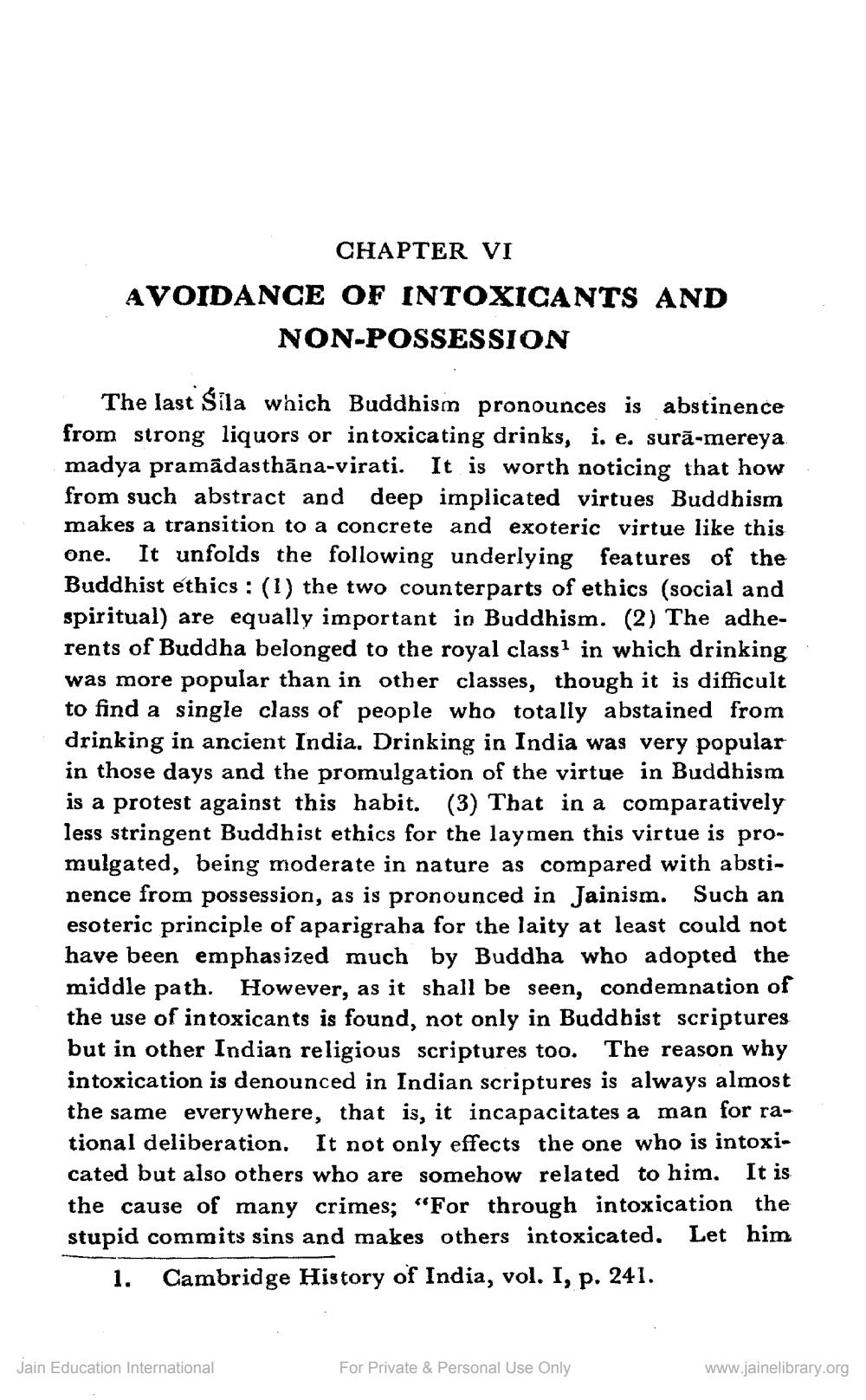________________
CHAPTER VI AVOIDANCE OF INTOXICANTS AND
NON-POSSESSION
The last sila which Buddhism pronounces is abstinence from strong liquors or intoxicating drinks, i. e. surã-mereya madya pramādasthāna-virati. It is worth noticing that how from such abstract and deep implicated virtues Buddhism makes a transition to a concrete and exoteric virtue like this one. It unfolds the following underlying features of the Buddhist ethics: (1) the two counterparts of ethics (social and spiritual) are equally important in Buddhism. (2) The adherents of Buddha belonged to the royal class in which drinking was more popular than in other classes, though it is difficult to find a single class of people who totally abstained from drinking in ancient India. Drinking in India was very popular in those days and the promulgation of the virtue in Buddhism is a protest against this habit. (3) That in a comparatively less stringent Buddhist ethics for the laymen this virtue is promulgated, being moderate in nature as compared with abstinence from possession, as is pronounced in Jainism. Such an esoteric principle of aparigraha for the laity at least could not have been emphasized much by Buddha who adopted the middle path. However, as it shall be seen, condemnation of the use of intoxicants is found, not only in Buddhist scriptures but in other Indian religious scriptures too. The reason why intoxication is denounced in Indian scriptures is always almost the same everywhere, that is, it incapacitates a man for rational deliberation. It not only effects the one who is intoxicated but also others who are somehow related to him. It is the cause of many crimes; “For through intoxication the stupid commits sins and makes others intoxicated. Let him
1. Cambridge History of India, vol. I, p. 241.
jain Education International
For Private & Personal Use Only
www.jainelibrary.org




